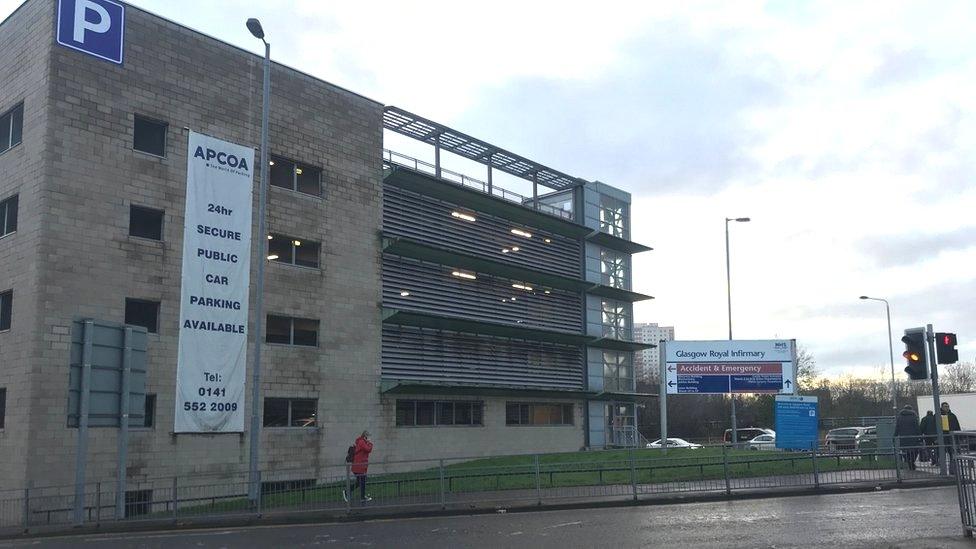Free parking scheme extended at three Scottish hospitals
- Published

Glasgow Royal Infirmary was one of the three hospitals to have a car park that charged for use
Free parking has been extended at three of Scotland's hospitals until January.
A measure to scrap charges at Ninewells Hospital in Dundee, Glasgow Royal Infirmary and Edinburgh Royal Infirmary was put in place in March.
The aim was to ensure staff caring for patients during the pandemic would not have to pay to park.
Parking fees at the rest of Scotland's hospitals were scrapped in 2008, but these three still required payment as they are run by private operators.
The car parks were built under long-term private finance initiative (PFI) projects.
The car park providers initially agreed to scrap the payments for three months, before extending the move to 30 September and now to the beginning of next year.
In May, Health Secretary Jeane Freeman said extending the pause on charges to September meant "we are able alleviate some of the worry and upset that's caused to our staff as they do so much to help protect all of us".
Ms Freeman announced the latest extension on Friday, and said the Scottish government was still looking at ways to resolve the long term parking charge issue at the three hospitals.
She said: "In March I wrote to the car park providers at these three PFI hospitals urging them to suspend car parking charges for staff and patients for at least the duration that NHS Scotland remained on an emergency footing. I am pleased they agreed to do this and extended the arrangements until September 2020.
"As we continue to deal with the Covid-19 pandemic, I am pleased that we are able to extend the free car parking arrangements until January 2021.
"This extension continues to support staff and remove the barriers to our staff working with the NHS during these unprecedented times."
What is PFI?
Governments and local authorities have always paid private contractors to build roads, schools, prisons and hospitals out of tax money.
But in 1992, the UK government hit on a way of getting the contractors to foot the bill.
Under PFI, contractors pay for the construction costs and then rent the finished project back to the public sector.
This allows the government to get new hospitals, schools and prisons without raising taxes.
The contractor, for its part, is allowed to keep any cash left over from the design and construction process, in addition to the "rent" money.
However, critics say that the government is just mortgaging the future - and the long-run cost of paying the private sector to run these schemes is more than it would cost the public sector to build them itself.
- Published24 March 2020